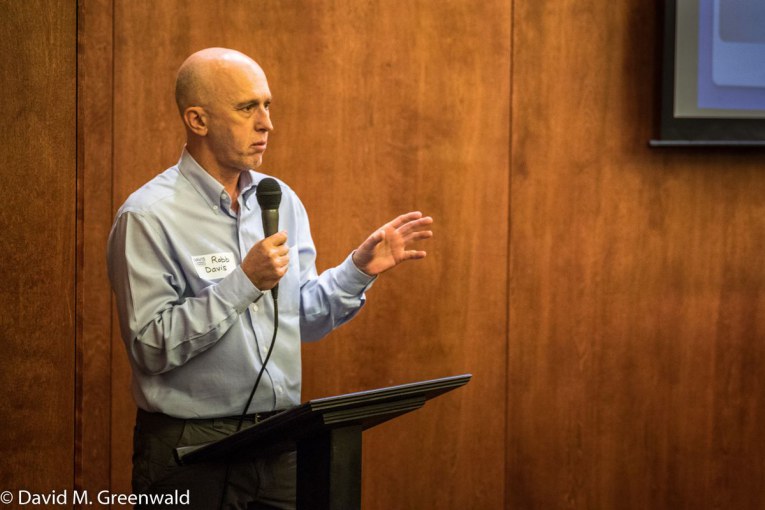

This week the Vanguard sent out the same five questions to all five of the Davis City Councilmembers, as well as City Manager Dirk Brazil. We will publish the responses as we get them.
Mayor Robb Davis was the first to respond. City Manager Dirk Brazil politely declined, stating, “I don’t feel it’s appropriate for staff to respond to these questions and best left to the policy makers, the council members.”
Here are Robb Davis’ responses to the Vanguard’s questions.
1. What do you consider the biggest area of concern for the city right now?
Robb Davis: After last evening’s presentation on the new projection model, I find it hard not to be concerned about the direction of pension, medical and retiree medical costs. They will continue to consume an ever-larger proportion of the budget in the coming years and there appears to be little we can do to change that. These costs will act as a fundamental constraint on our ability to fund critical infrastructure and program needs.
2. If you could do one thing this year – what would it be and why?
Robb Davis: Figure out a way to encourage those living in the streets and struggling with addiction to “come in” and get help. The syndrome that displays itself as homelessness is a complex mix of mental health challenges and the attendant addictions brought on by self-medication. Encouraging people to access the limited services is a huge challenge. Expanding those services as large.
3. What is your view on the need for cost containment measures?
Robb Davis: I have written about this and so my views are known (see Robb Davis: “Guest Sunday Commentary: Containing City Costs”). I am excited about the possibility of having Bob Leland lead a sub-committee of the FBC or a citizen’s group to find best practices around the state and nation and make recommendations to the City Council.
4. How would you change Davis’ approach to housing?
Robb Davis: If we are to maximize the space we have, use land more efficiently, and provide a variety of housing types (without expanding the borders—which seems to be where things are), then we need to be willing to allow for denser projects in every area of the City where there are opportunities. I don’t think this represents a “change” in my thinking—I ran on the idea of creating more multi-family rental housing—but the change needs to come from more honesty about how such housing, if done well, can provide more opportunities for students, young professionals and families, while reducing carbon emissions and traffic congestion. Our local answer to the housing challenges seems to be “build it somewhere else”—as if building it “there” means there are no impacts “here” (or anywhere). That is a false narrative. I have helped lead the effort to push UC Davis to build more—I have been around the table with the Chancellor and staff and been frank about what we want. But this is not an either/or situation. We both need to do more to meet the full array of housing needs.
5. What is one issue that we should be paying attention to but are not?
Robb Davis: Addiction among high school students. It does not matter the substance—alcohol, cannabis, heroin, meth, or cocaine (making a comeback?). We need to pay attention to the problem of addiction—addiction to the addiction. We are not doing enough in my view. Talk to any school counselor or our police and you will find agreement I am sure.
embed for Vanguard:


Someone needs to say this-
Re: Pension, Medical and Retiree Medical costs
nothing was left behind to pay for this ie a business, an investment with returns, some money making enterprise-
“You chose to work for the city. You did an outstanding job! Your reward is knowing you helped. Now though, there is no money to pay for fire, police, ambulance, schools, parks and streets…you must realize this and accept the fact. Thank you for your contribution. Our family (city) is broke. We look forward to ways we will go forward, however, including the immediate “stop payment” on your accounts.